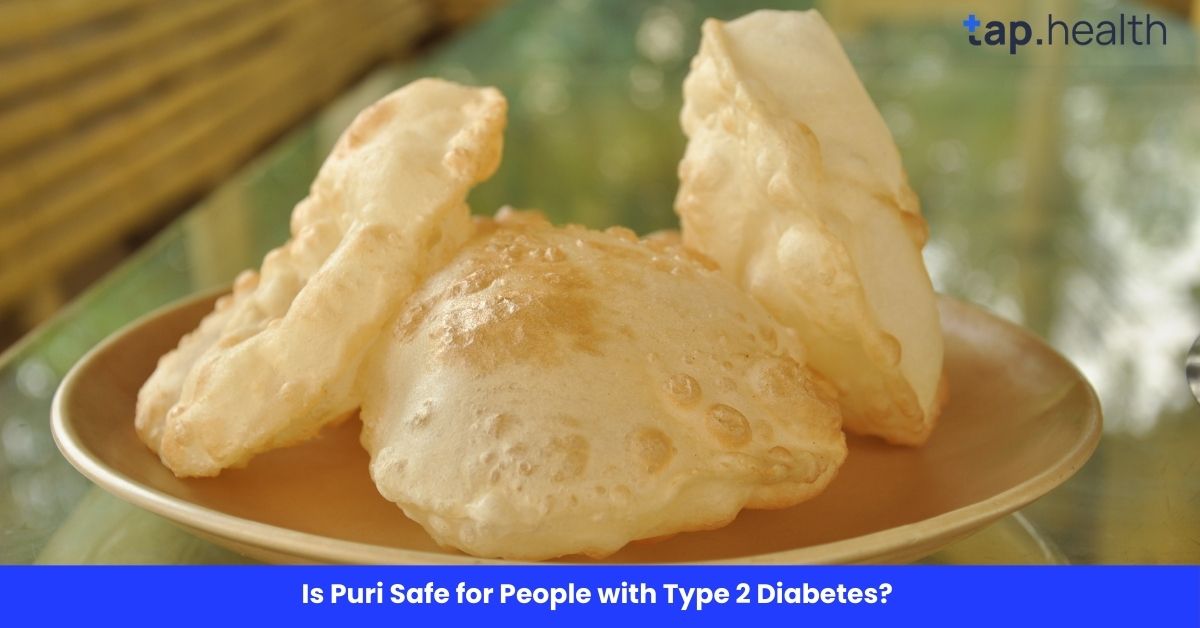Table of Contents
- Beta Blockers and Diabetes: What You Need to Know
- How Beta Blockers Affect Blood Sugar Control
- Managing Diabetes While on Beta Blockers: A Guide
- Understanding the Interaction Between Beta Blockers and Insulin
- Beta Blockers vs. Other Medications for Diabetes: A Comparison
- Frequently Asked Questions
- References
Managing diabetes requires a multifaceted approach, and sometimes, that includes medication beyond just insulin or oral hypoglycemics. Are you or someone you know taking beta-blockers? If so, understanding beta-blockers and their impact on diabetes management is crucial. This blog post will explore the often-overlooked interaction between these two, examining how beta-blockers can affect blood sugar control and what steps you can take to mitigate potential risks. We’ll break down the complex relationship in a clear, concise way, so you can feel confident in your understanding and better manage your health. Let’s dive in!
Beta Blockers and Diabetes: What You Need to Know
Diabetes affects a significant portion of the population, with 61% of those diagnosed falling between the ages of 20 and 64, a crucial working-age demographic prevalent across India and tropical countries. Understanding the interaction between diabetes management and medications like beta-blockers is crucial for maintaining good health. Beta-blockers, commonly prescribed for conditions like high blood pressure and heart problems, can mask the symptoms of hypoglycemia (low blood sugar), a serious complication of diabetes. This is particularly concerning in regions with high diabetes prevalence like India, where access to immediate medical care might be limited.
Understanding the Interaction
Beta-blockers work by slowing down the heart rate and relaxing blood vessels. In individuals with diabetes, this can interfere with the body’s natural response to low blood sugar, such as increased heart rate and sweating. These symptoms are crucial warning signs, and their masking by beta-blockers can lead to delayed treatment and potentially dangerous consequences, especially for the significant 39% of diabetics aged 65+ who are more susceptible to complications. Therefore, it’s vital for individuals with diabetes taking beta-blockers to be extra vigilant in monitoring their blood sugar levels. It’s also important to remember that maintaining a strong immune system is vital for managing diabetes effectively. Learn more about Boosting Immunity While Managing Diabetes to support your overall health.
Managing Diabetes While on Beta-Blockers
Regular blood glucose monitoring is paramount. Individuals should work closely with their doctors to develop a comprehensive management plan. This may include adjusting medication dosages, implementing stricter dietary guidelines, and incorporating regular exercise. Understanding the potential impact of beta-blockers on blood sugar awareness is crucial for preventing serious health risks. In tropical climates, particularly in India, the added challenge of heat and humidity can further impact blood sugar levels, highlighting the need for careful monitoring and proactive management. Consult your physician to discuss strategies for managing your diabetes effectively while taking beta-blockers. They can help you develop a personalized plan to mitigate potential risks and ensure your overall well-being. Remember that protecting your heart is also a key aspect of managing diabetes; read more about Protect Your Heart from Diabetes: 5 Essential Steps.
How Beta Blockers Affect Blood Sugar Control
Managing blood sugar effectively is crucial for individuals with diabetes, particularly in regions like India and other tropical countries where the prevalence of Type 2 diabetes is high. Over 80% of Type 2 diabetics experience insulin resistance as a key underlying factor, impacting their ability to regulate blood glucose levels. This is where the interaction between beta-blockers and diabetes management becomes significant.
Understanding the Interaction
Beta-blockers, commonly prescribed for conditions like hypertension and heart disease, can interfere with blood sugar control in several ways. They can mask the symptoms of hypoglycemia (low blood sugar), making it harder to detect and treat potentially dangerous drops in blood glucose. Furthermore, some studies suggest that beta-blockers can impair the body’s response to insulin, exacerbating insulin resistance and leading to higher blood sugar levels. This effect is particularly relevant in populations with a high prevalence of diabetes and cardiovascular disease.
Practical Implications in Tropical Climates
In hot and humid climates prevalent across India and other tropical regions, the risk of complications from diabetes is further amplified. The increased risk of dehydration and cardiovascular stress can interact negatively with the effects of beta-blockers on blood sugar regulation. Therefore, individuals with diabetes taking beta-blockers should monitor their blood sugar more frequently and work closely with their healthcare providers to adjust medication and lifestyle accordingly. Regular check-ups and careful monitoring are essential for mitigating these risks.
Actionable Steps for Better Management
Regular blood sugar monitoring is paramount, especially if you are taking beta-blockers. Consult your doctor or diabetologist about alternative medications if possible. They can help you manage your diabetes effectively while considering the potential side effects of your medications. Adopting a healthy diet and regular exercise, crucial components of diabetes management in any climate, become even more vital when considering the impact of beta-blockers. To learn more about maintaining healthy blood sugar levels, check out our guide on Blood Sugar Levels. Building good habits can also significantly improve your blood sugar control; discover effective strategies in our article on How to Build Habits That Help Control Blood Sugar Levels. Discuss these lifestyle adjustments with your healthcare provider to create a personalized plan.
Managing Diabetes While on Beta Blockers: A Guide
Managing diabetes is already a daily challenge, but it becomes even more complex when you’re also prescribed beta-blockers — medicines often used to treat high blood pressure, heart disease, or certain heart rhythm problems.
The concern? Beta-blockers can mask the warning signs of hypoglycemia (low blood sugar), which can delay treatment and lead to serious complications. This is especially important in countries like India, where diabetes is highly prevalent and the climate can further affect health and energy levels.
Why Beta Blockers Affect Blood Sugar Awareness
Beta-blockers work by blocking adrenaline’s effects. Adrenaline normally raises blood sugar and triggers warning signs when sugar drops — like a faster heartbeat, sweating, and shakiness.
When you’re on beta-blockers, these early signs can be muted or absent. That means you might not realize your blood sugar is low until the situation becomes dangerous.
This is a major concern, especially given that over 30% of people with diabetes in India have HbA1c levels above 9%, indicating poor sugar control and a higher risk of severe lows.
Tips to Manage Diabetes Safely While on Beta Blockers
-
Check Blood Sugar Often
-
Monitor your levels before and after meals, and at bedtime.
-
Consider using a Continuous Glucose Monitor (CGM) for real-time alerts.
-
-
Know the Subtle Signs
-
Even without classic symptoms, look for unusual tiredness, dizziness, blurred vision, or confusion.
-
-
Talk to Your Doctor Regularly
-
Inform them about all medications you’re taking.
-
Discuss possible dosage adjustments or alternative medicines if needed.
-
-
Follow a Steady Routine
-
Eat balanced meals on time.
-
Include complex carbs, lean proteins, and fiber to prevent sharp sugar drops.
-
-
Incorporate Indian Lifestyle Habits
-
Mindful eating, yoga, and daily walking can help maintain better sugar control alongside medication.
-
Why Expert Guidance Matters
Managing diabetes while on beta blockers requires extra vigilance. A doctor or certified diabetes educator can:
-
Tailor a monitoring plan to your needs.
-
Adjust medication safely.
-
Help you maintain healthy sugar levels without increasing heart risks.
In tropical climates, where dehydration and heat can also affect sugar control, proactive management is key.
Your goal should be simple but vital: stay aware, stay consistent, and stay connected with your healthcare provider.
Understanding the Interaction Between Beta Blockers and Insulin
The Complex Relationship in Diabetes Management
Managing diabetes, particularly in regions like India and other tropical countries, presents unique challenges. Over 60% of people with diabetes in India also have hypertension, a significant factor influencing treatment strategies. This high prevalence necessitates careful consideration of drug interactions, especially concerning medications like beta-blockers frequently prescribed for hypertension. Beta-blockers, while effective in lowering blood pressure, can mask the symptoms of hypoglycemia (low blood sugar), a serious complication of diabetes. This masking effect can be particularly dangerous, delaying appropriate treatment and potentially leading to severe consequences.
Impact on Blood Sugar Control
The interaction between beta-blockers and insulin is complex. Beta-blockers can interfere with the body’s natural response to insulin, impacting blood glucose control. They can also blunt the typical symptoms of hypoglycemia, making it difficult for individuals to recognize and treat low blood sugar episodes. This is crucial in tropical climates where dehydration and heat stress can further exacerbate diabetic complications. Understanding how various factors influence insulin response is key; for example, you might find our article on Dairy and Alternatives: Understanding Their Impact on Insulin Response helpful.
Practical Considerations for Patients in India and Similar Regions
Careful monitoring of blood glucose levels is paramount for individuals with diabetes taking beta-blockers. Regular self-monitoring, alongside close collaboration with healthcare professionals, is essential. Patients should be educated about the potential masking of hypoglycemia symptoms and instructed on how to identify alternative warning signs, such as shakiness, dizziness, or confusion. Open communication between patients and their doctors is vital to ensure safe and effective management of both diabetes and hypertension in high-risk populations. Individuals should never adjust their medication dosages without consulting their physician. It’s also important to be aware of the potential effects of insulin on other organs, such as the kidneys. For more information, read our article on Does Insulin Affect Kidneys?
Beta Blockers vs. Other Medications for Diabetes: A Comparison
Understanding the interplay between beta blockers and diabetes management is crucial, especially considering that over 75% of people with diabetes reside in low- and middle-income countries, as highlighted by the IDF Diabetes Atlas. This high prevalence necessitates a clear understanding of how beta blockers compare to other diabetes medications commonly used in Indian and tropical countries.
Impact on Blood Sugar Control
While beta blockers don’t directly impact blood sugar levels, they can mask the symptoms of hypoglycemia (low blood sugar), a serious complication of diabetes. This masking effect can be particularly dangerous, delaying appropriate treatment and potentially leading to severe consequences. Other diabetes medications, such as metformin, sulfonylureas, and insulin, directly influence blood sugar control, offering more predictable management. The choice of medication must carefully consider individual patient needs and risk factors. For patients with kidney disease, choosing the right medication is especially critical; consider reading more on Which Diabetes Drug is Best for Diabetics with Kidney Disease?
Cardiovascular Considerations
Beta blockers are often prescribed for cardiovascular conditions, common comorbidities in diabetes. However, some studies suggest they might negatively affect glycemic control in certain individuals. This necessitates a careful evaluation of the patient’s overall health profile to balance cardiovascular benefits against potential impacts on blood glucose levels. Other medications, like ACE inhibitors and ARBs, may provide similar cardiovascular protection with fewer metabolic side effects. It’s also important to consider the role of dietary supplements in diabetes care, and whether they can complement or interfere with medication; learn more at Safe and Effective Dietary Supplements for Diabetes Care.
Regional Considerations for Diabetes Management
In many Indian and tropical countries, access to specialized healthcare and advanced diabetes management tools may be limited. Therefore, the choice of medication should consider cost-effectiveness and accessibility, alongside the individual’s overall health. Educating patients about the potential interactions between beta blockers and diabetes is critical for successful self-management, especially given limited access to specialized care in some regions. Careful monitoring of blood sugar levels is paramount when beta blockers are used in conjunction with diabetes medications.
Frequently Asked Questions on Understanding Beta Blockers and Their Impact on Diabetes Management
Q1. What are the main risks of taking beta-blockers if I have diabetes?
Beta-blockers can mask the symptoms of hypoglycemia (low blood sugar), such as increased heart rate and sweating, delaying treatment and potentially leading to serious complications. They may also worsen insulin resistance, making blood sugar control more difficult.
Q2. How do beta-blockers mask hypoglycemia symptoms?
Beta-blockers interfere with your body’s natural response to low blood sugar. This means you might not experience the usual warning signs, making it harder to recognize and treat low blood sugar.
Q3. What can I do to manage my diabetes effectively while taking beta-blockers?
Regular blood glucose monitoring is crucial. Close collaboration with your doctor is essential to adjust your medication, diet, and lifestyle as needed. Discuss alternative medications if possible.
Q4. Why is this risk particularly concerning in certain regions like India?
In regions like India with high diabetes prevalence and limited healthcare access, the delayed recognition of hypoglycemia due to beta-blockers poses a significant risk, as timely treatment may be less readily available.
Q5. Are there any additional factors that could make managing diabetes harder while on beta-blockers?
Yes, factors like hot and humid climates can further complicate diabetes management while on beta-blockers, as heat and humidity can affect blood sugar control. Your doctor can help manage these additional challenges.
References
- A Practical Guide to Integrated Type 2 Diabetes Care: https://www.hse.ie/eng/services/list/2/primarycare/east-coast-diabetes-service/management-of-type-2-diabetes/diabetes-and-pregnancy/icgp-guide-to-integrated-type-2.pdf
- A Comprehensive Review of Modern Methods to Improve Diabetes Self-Care Management Systems: https://thesai.org/Downloads/Volume14No9/Paper_20-A_Comprehensive_Review_of_Modern_Methods_to_Improve_Diabetes.pdf



